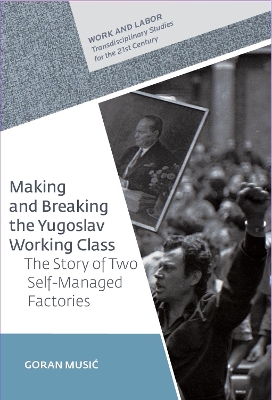Workers' self-management was one of the unique features of communist Yugoslavia. Goran Music has investigated the changing ways in which blue-collar workers perceived the recurring crises of the regime. Two self-managed metal enterprises, one in Serbia another in Slovenia, provide the frame of the analysis in the time span between 1945 and 1989. These two factories became famous for strikes in 1988 that evoked echoes in popular discourses in former Yugoslavia. Drawing on interviews, factory publications and other media, local archives, and secondary literature, Music analyzes the two cases, going beyond the cliches of political manipulation from the top and workers' intrinsic attraction to nationalism.
The author explains how, in the later phase of communist Yugoslavia, growing social inequalities among the workers and undemocratic practices inside the self-managed enterprises facilitated the spread of a nationalist and pro-market ideology on the shop floors. Restoring the voice of the working class in history, Music presents Yugoslavia's workers actors in their own right, rather than as a mass easily manipulated by nationalist or populist politicians. The book thus seeks to open a debate on the social processes leading up to the dissolution of Yugoslavia.
- ISBN13 9789633863398
- Publish Date 15 October 2020
- Publish Status Active
- Publish Country HU
- Imprint Central European University Press
- Format Hardcover
- Pages 350
- Language English
